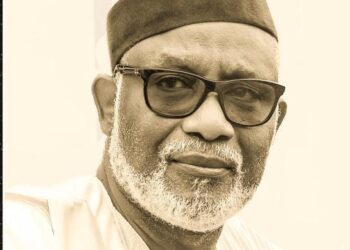BOOK REVIEW
PAGES: 128
There was a woman in northern Nigeria whose name you probably never came across or heard of but whose achievements and contribution to nation-building qualify her for a golden seat in the Nigerian and African women hall of fame. Sadly, her name had hitherto been thrown out and kept in the smelly dustbin of history – hidden, neglected, forgotten.
Alhajiya Maimunatu Abdullahi, a.k.a. Dadasare (or Dada Sare, but I prefer the single word), was a Fulani woman from present-day Adamawa State who lived between 1918 and 1984. She was the first woman in the region to become a journalist, a trained nurse, an author, an educationist, a recorded musical artiste, the founder and president of a women’s association, and the recipient of the prestigious Member of the Order of the Niger (MON) which the Gowon administration gave her in 1970 in recognition of her rare and brilliant accomplishments and contribution to the development of the country.
Dadasare was also best known as Mrs. East due to the fascinating relationship she had with Dr. Rupert M. East, the father of contemporary Hausa literature who also founded the region’s best-known newspapers, the Nigerian Citizen and the Gaskiya Ta Fi Kwabo where Dadasare worked as a reporter/columnist in the early 1940s.
In 1975 she completed her autobiography in which she recounts the story of her life, from her origin and birth, to a horrible kidnap incident at the age of 11, following which she was raped repeatedly by a white British colonial officer who impregnated her, to her career in the adult education sector of the colonial and postcolonial governments, etc. An interesting aspect is her struggle with spirituality as she searches for the truth in Christianity and Islam.
The title, “It Can Now Be Told”, came out of the consideration that her story could be released since Dr. East had died; his demise and the book’s completion occurred within the same year – one after the other, of course.
Dadasare had wanted this appropriately titled book to be published 35 years ago, and actually made the effort, but her dream was fulfilled posthumously only three years ago.
The book’s blurb says:
“In the late 1920s, an 11-year-old Fulani girl was kidnapped from a village in the north-eastern part of Nigeria and handed over to a British colonial officer, who kept her as a sex slave. His abandonment of her and return to his country turned her into the willing consort of yet another white man, the famous Dr. Rupert M. East, who is regarded as the father of contemporary Hausa literature. Their unusual union was a turning point in her life. This book recounts, in her own words, the incredible story of Maimunatu Dadasare Abdullahi. In it, she narrates those dark days, especially the hurdles she scaled as a pioneer participant in some of the events that shaped the emerging Northern Nigeria – colonial rule, nursing, adult education, journalism and women’s empowerment. The introduction and afterword by Dr. Aliyah Adamu Ahmad, a leading literary historian, are an invaluable addition to the tragic story, especially the agony that capped Dadasare’s sterling accomplishments.”
This is a book everyone concerned about the origin of Nigeria and why we are where we are today, as well as humanity in general, would like to read. You will be glad to read this book!





